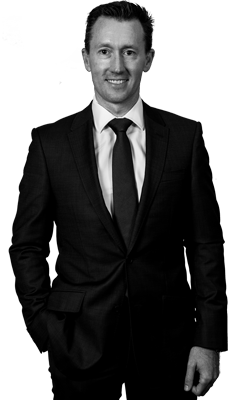Investor Insights

SHARE
The people behind the process – Montgomery Small Companies Fund
It’s been a while since I last did a profile piece on a member of the Montgomery team and in that time, we had two skilled investment professionals join. I lift the lid and see what makes the people behind the process, the blog posts and the numbers tick. I catch up with one of our newest Portfolio Managers on our Australian Small Companies team – Gary Rollo.
What initially drew you into funds management?
There were lots of little things that combined to lead me here. One of the notable events I remember was the period when I was a young boy (maybe 10 -12 years old) and in the UK the Prime Minister was Margaret Thatcher. She undertook a huge privatisation program and sold off assets like British Steel, British Rail and British Telecom and I put all my savings into each of these and they all went up like a rocket! I thought I was a pretty good investor as a result and that desire to find great businesses and invest in them has stayed with me.
What makes a successful investor?
Firstly, balance. The ability to see both sides of the investment proposition. I think most investors look too short-term at what the next few data points will be. But a good investor looks past just this and forms a view as to what good quality business can really achieve over the long run. Understanding this value differential then needs to be combined with a bit of art. As an investor needs to understand when the market is going to pay for this valuation gap and make sure you participate in good risk reward situations.
Finally, people overestimate what businesses can do in the short term and underestimate what good businesses can do in the long term.
What is the best piece of advice you have been given?
I spent a bit of time with my grandparents and played a lot of cards with them. My grandfather had this piece of advice which stuck with me. He said “It doesn’t really matter what happened yesterday, because no one can go back and change that. Look at what you can do today that can make the future better.”
What is the biggest mistake that most investors make?
This is quite hard. This partly works back into my previous answer in that a lot of people focus on the next few data points and so too short term orientated. The other one is that people are smart, and they often try to solve problems that are just not solvable and or irrelevant. An example of this might be the marco environment and where it is going and the effect that may or may not have on a company’s share price. It’s much better to go after the detail of the company in more detail than others, as this is a place where you can get an advantage over those who spend time on the unsolvable or irrelevant issues.
If you were not managing a fund at a boutique funds management firm, what would you most likely be doing?
If I didn’t have to work, then I’d be climbing the world’s best mountains. That’s what I enjoy the most. If I had to work, I would be using my engineering background and love of computers to write software to solve engineering problems.
So Gary, can you please share with our readers what you are working on at this minute and why?
I’ve actually been doing some work on the likely future shape of the vaccine rollout here in Australia, because one of our themes is to invest in the re-opening businesses globally rather than domestically. We see that in particular the UK, Europe and the US are coming off a lower base and opened up faster with a positive trajectory of consuming services. But at some stage Australia will be reopening and we will want to move that global reopening capital in our fund to then gain exposure to the pent-up demand in services reopening consumption here in Australia.
What do you do in your spare time?
Well, I have three kids, a beautiful wife and a dog, so I don’t have a lot of spare time. But what I do is run two football teams, a girls’ team and a mixed team. All the training and game time takes up a lot of my time. Then when I can, I try and fit in a bit of exercise for myself. Usually going for a run and riding the bike into work.

